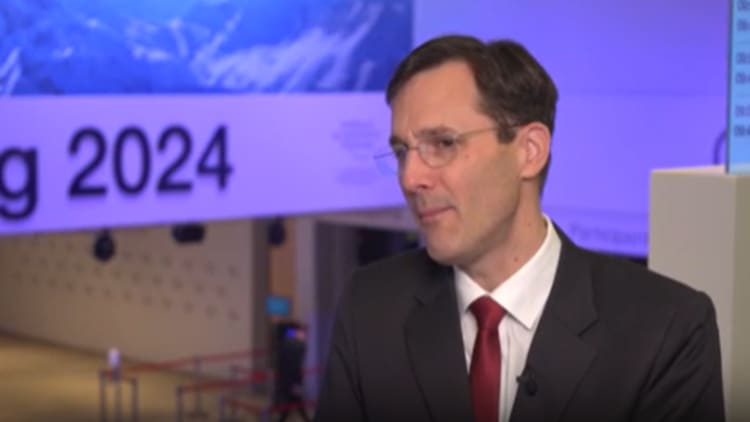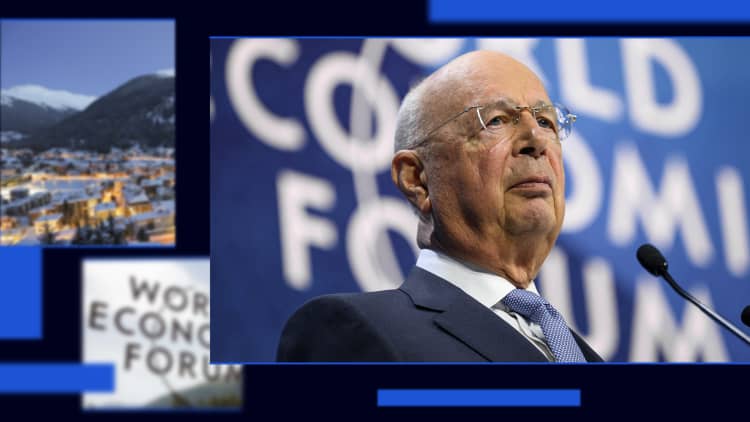The Ebba Maersk container ship, operated by A.P. Moeller-Maersk A/S, leaves Suez port and heads towards the Red Sea after passing through the Suez Canal in Suez, Egypt on Saturday, April 6, 2013.
Kristian Helgesen | Bloomberg | Getty Images
DAVOS, Switzerland — Top CEOs are closely following tensions in the Red Sea, warning that this kind of volatility for supply chains is likely here to stay.
Houthi rebels from Yemen have attacked commercial vessels traveling in the Red Sea since November. The militant group, which has ties to Iran and sympathetic to the Palestinian cause, claims the attacks are in response to the ongoing war in the Gaza Strip.
The United States and the U.K. have launched a series of strikes aimed at stopping the attacks and protecting the commercial ships. However, tensions are so high that several cargo ships have halted their transit through the region and are instead moving goods via the Cape of Good Hope in Africa. The diversion adds around 10 days, making it longer and costlier to move items from Asia to Europe and vice-versa.
Jesper Brodin, the CEO of Ingka Group, told CNBC this week at the World Economic Forum in Davos, Switzerland: “The last years we have been used to, I think, living in more turbulent times and of course it is regrettable to see that we have another disturbance in the world.”

When asked if this volatility was the new normal, he said: “I would say so, in the last years we have accepted the fact that the world is more dynamic and more turbulent.”
Ingka Group operates some of the IKEA stores and Brodin said that current;y, unlike during the Covid-19 pandemic, stocks “are full, so we are in good shape.”
Supply chains were massively disrupted during the pandemic and the subsequent bounce back, given the restrictions and the closure of borders. Although there has been a rebound in the sector, the recent conflicts, climate change and an overall complex geopolitical picture are leading to higher freight rates and a rethinking of the efficiency of certain processes.
Tobias Meyer, the CEO of DHL, shared concerns over the new normal for supply chains.
“What we have is continuous disruptions,” he said. “We have an issue in the Panama Canal, we have an issue in the Red Sea. And these are the things that build up and there is some concern around that.”

“We are going to see continued volatility,” he told CNBC Wednesday from Davos.
He added that during 2024 and 2025 the world will continue to see volatility “because the sources of disruption are just very active.”
Volatility in supply chains could mean higher prices for consumers and more headaches for central bankers, who have been tackling lofty inflation since 2022.
“The geopolitical situation is not a very good one,” Thomas Jordan, the governor of the Swiss central bank, told CNBC on Wednesday.
“If you have an escalation in the Middle East, or in Eastern Europe … that could easily have an impact on energy prices, on the general sentiment in the economy, that could have an impact on the exchange rate on inflation, etc. And then we have to see how we can react in the best possible way,” he said.
“We have a risk management approach to our monetary policy, we will take these risks into account and then find the best way to react to those developments,” he added.
Read More: World News | Entertainment News | Celeb News
CNBC








